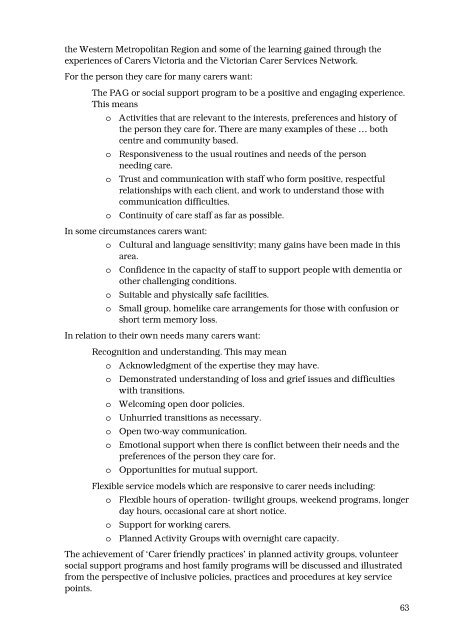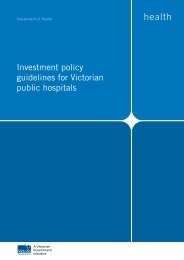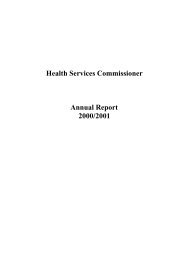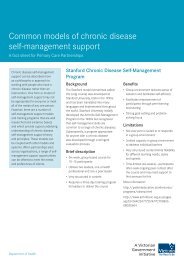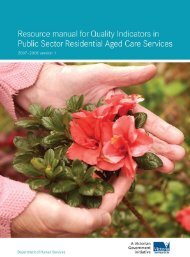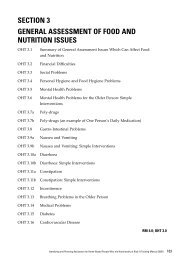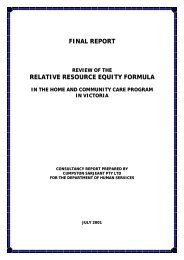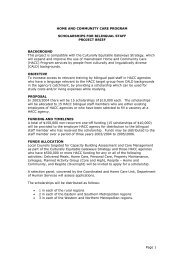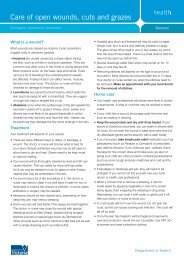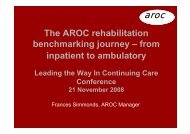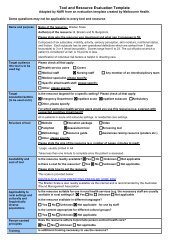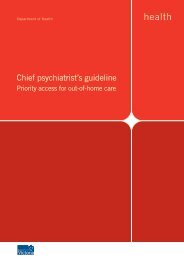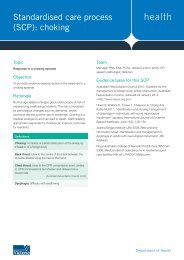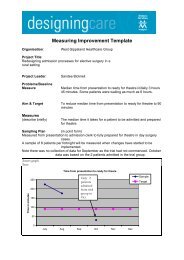Abstracts & Presentation Summaries - Department of Health
Abstracts & Presentation Summaries - Department of Health
Abstracts & Presentation Summaries - Department of Health
You also want an ePaper? Increase the reach of your titles
YUMPU automatically turns print PDFs into web optimized ePapers that Google loves.
the Western Metropolitan Region and some <strong>of</strong> the learning gained through the<br />
experiences <strong>of</strong> Carers Victoria and the Victorian Carer Services Network.<br />
For the person they care for many carers want:<br />
<br />
The PAG or social support program to be a positive and engaging experience.<br />
This means<br />
o<br />
o<br />
o<br />
o<br />
Activities that are relevant to the interests, preferences and history <strong>of</strong><br />
the person they care for. There are many examples <strong>of</strong> these … both<br />
centre and community based.<br />
Responsiveness to the usual routines and needs <strong>of</strong> the person<br />
needing care.<br />
Trust and communication with staff who form positive, respectful<br />
relationships with each client, and work to understand those with<br />
communication difficulties.<br />
Continuity <strong>of</strong> care staff as far as possible.<br />
In some circumstances carers want:<br />
o Cultural and language sensitivity; many gains have been made in this<br />
area.<br />
o Confidence in the capacity <strong>of</strong> staff to support people with dementia or<br />
other challenging conditions.<br />
o Suitable and physically safe facilities.<br />
o Small group, homelike care arrangements for those with confusion or<br />
short term memory loss.<br />
In relation to their own needs many carers want:<br />
<br />
Recognition and understanding. This may mean<br />
o Acknowledgment <strong>of</strong> the expertise they may have.<br />
o Demonstrated understanding <strong>of</strong> loss and grief issues and difficulties<br />
with transitions.<br />
o Welcoming open door policies.<br />
o Unhurried transitions as necessary.<br />
o Open two-way communication.<br />
o Emotional support when there is conflict between their needs and the<br />
preferences <strong>of</strong> the person they care for.<br />
o Opportunities for mutual support.<br />
<br />
Flexible service models which are responsive to carer needs including:<br />
o Flexible hours <strong>of</strong> operation- twilight groups, weekend programs, longer<br />
day hours, occasional care at short notice.<br />
o Support for working carers.<br />
o Planned Activity Groups with overnight care capacity.<br />
The achievement <strong>of</strong> ‘Carer friendly practices’ in planned activity groups, volunteer<br />
social support programs and host family programs will be discussed and illustrated<br />
from the perspective <strong>of</strong> inclusive policies, practices and procedures at key service<br />
points.<br />
63


